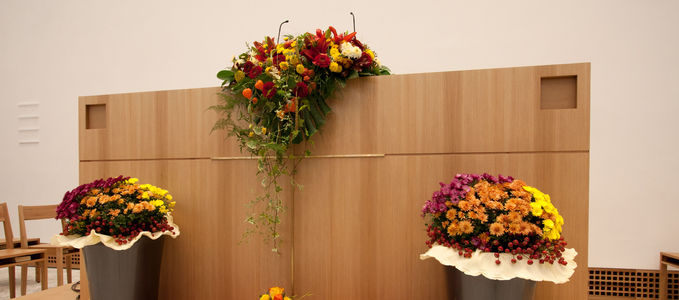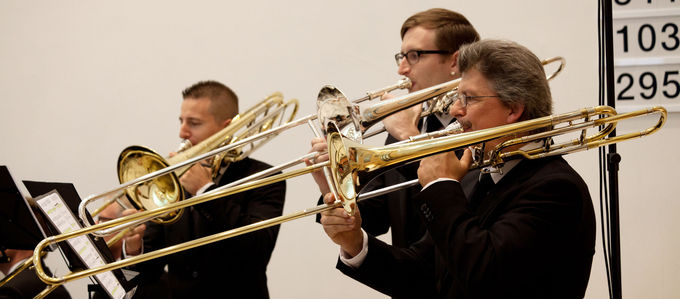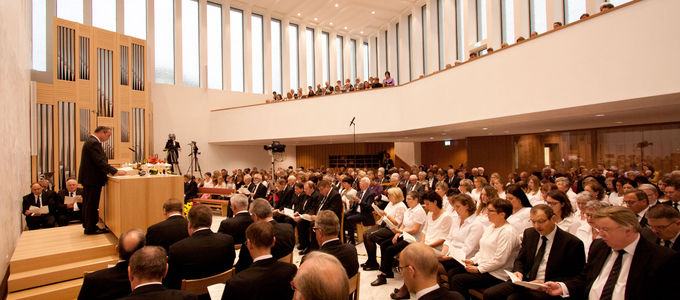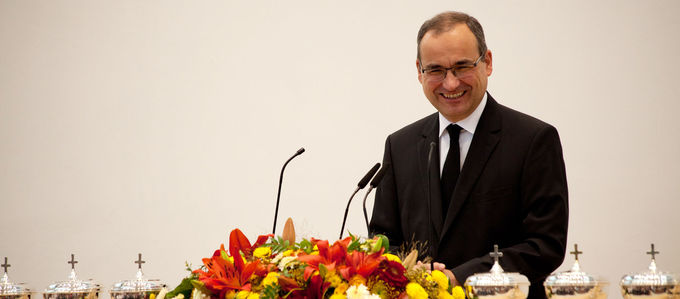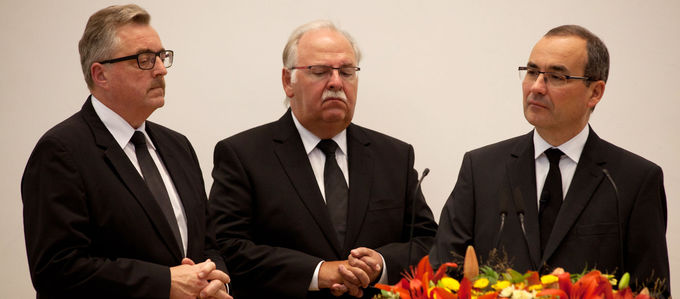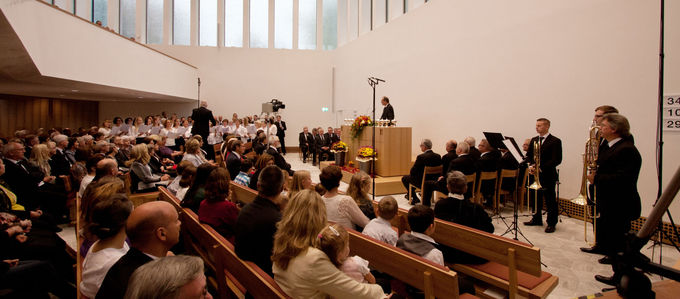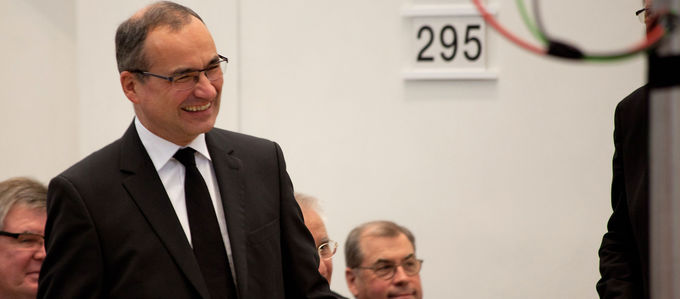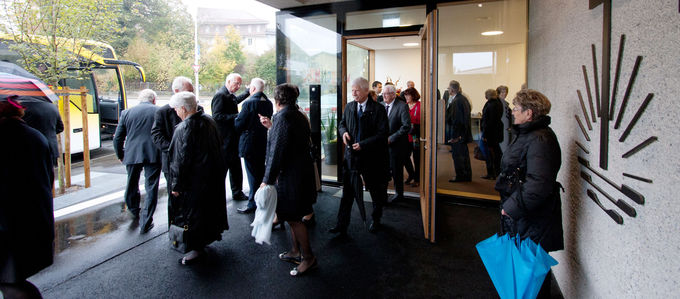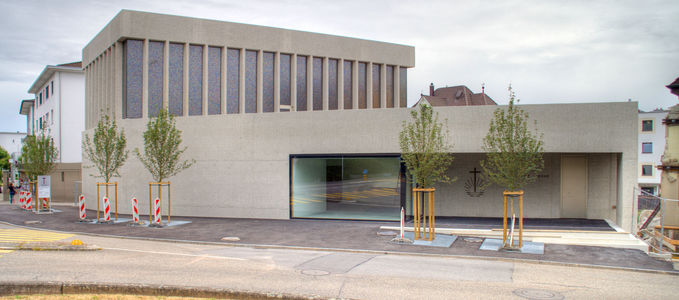
In a divine service in Switzerland recently, Chief Apostle Jean-Luc Schneider took a closer look at the wealth of the triune God. He used a well-known parable and explained it in a new way.
“So is he who lays up treasure for himself, and is not rich toward God.” This is how the parable of the rich fool ends (Luke 12: 16–21). This was the Bible text the Chief Apostle used in Zofingen (Switzerland) on 18 October 2015.
“What was the problem with the man? He was rich, but that is no sin. The problem was his heart’s attitude, his greed,” the Chief Apostle said. He went on to address the many faces of greed.
- You forget to be grateful. Most people think they are entitled to what they possess. “And often they not only forget to thank God, but they also forget to thank their neighbour, their wife, and the family who helped along and contributed.”
- You want to enjoy without any restrictions. “Your time, your money, your leisure time, your health—it is all yours. You can do with it what you like.” But this does not absolve you from continuing to work on your soul and from fulfilling the responsibilities you have toward God.
- You only think of yourself. “The rich fool did not waste a single thought on his neighbour. He spoke only of himself. I, I, I …” But the way we deal with the available resources and how we treat the environment also has consequences for others.
- Your thinking is short-sighted. “Our goal is eternal fellowship with God. That is why we set our priorities in such a way that we can attain this eternal joy.”
Signs of wealth …
“We are to become rich in God,” Chief Apostle Schneider said. “But what does it mean to become rich?”
- “Those who do not suffer poverty are rich.
- “Those who are rich can make their lives as pleasant as possible.
- “They can share some of their wealth and still have enough for themselves.
- “The rich can afford things that others cannot afford.”
“What riches does God offer us?” was the next question.
- Jesus Christ offers us the wealth of His grace.
- God the Father offers the wealth of His love.
- The Holy Spirit provides access to His riches in word and knowledge.
… in the triune God
“Through His sacrifice Jesus Christ saved us from the scourge of eternal death.” Through His grace He makes our life more pleasant. He forgives our sins and absolves us from the burden of our guilt. We know that we are rich in Christ’s grace, so we can also easily forgive our neighbour. This will not be detrimental to our pride or dignity. Through this grace we are able to obtain a luxury that people normally cannot attain: we can enter the kingdom of glory.”
“We are rich in the love of God. He is a God who wants to help us. Our needs are never bigger than He is. He chose me. He wants me to be with Him forever. We have such an abundance of divine love that it makes us happy that God also lavishes this gift on our neighbour. And because we know that we are loved by God we can afford the luxury of having a joyful and peaceful heart even in times of affliction.”
Recognizing God’s wealth and taking possession of it
“The Holy Spirit leads us into knowledge. His teaching and His word are eternally valid. This wealth helps to make our lives comfortable. No matter what happens, there is always a way to be blessed by God. The word of God and the knowledge of Jesus Christ are not mysteries that are guarded by a few people only. On the contrary, we want to proclaim the gospel to others. Through the teaching of God and His Son we are in a privileged position: we know the future. The Lord Jesus will eventually return and then we will be with Him forever.”
In conclusion, the Chief Apostle called on the congregation: “Let us recognize the wealth that is found in God’s grace and take possession of it for ourselves. Let us recognize the wealth of His love, and let us acquire more and more of His teaching and knowledge. This is unparalleled wealth.”






